News
-
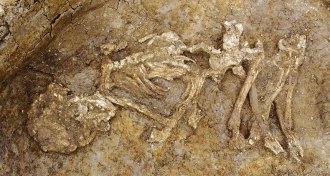 Anthropology
AnthropologyBronze Age mummies identified in Britain
Bone analysis finds widespread mummy making in ancient England and Scotland.
By Bruce Bower -
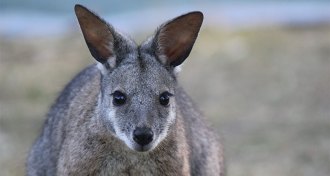 Animals
AnimalsLights at night trick wild wallabies into breeding late
Artificial lighting is driving wild tammar wallabies to breed out of sync with peak season for food
By Susan Milius -
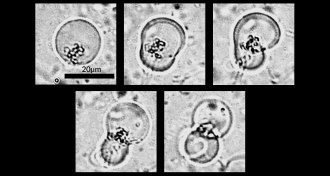 Life
Life‘Protocells’ show ability to reproduce
Lab-made “protocells” mimic the division process of early cells, and may help researchers understand cellular evolution.
-
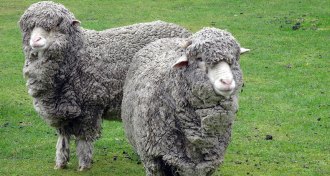 Animals
AnimalsMath describes sheep herd fluctuations
Scientists have developed equations to describe the motion of a herd of sheep.
-
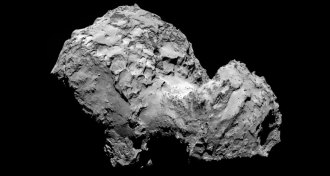 Planetary Science
Planetary Science67P reveals recipe for a comet
Rosetta’s comet 67P probably started out as two smaller comets.
-
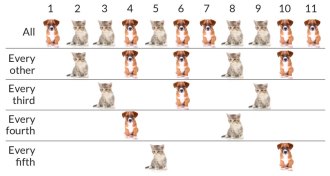 Math
Math83-year-old math problem solved
An 83-year-old math problem concerning sequences of 1s and –1s has been solved.
By Andrew Grant -
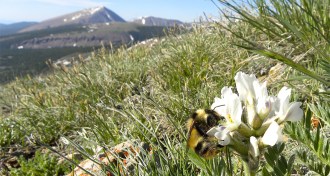 Animals
AnimalsAlpine bee tongues shorten as climate warms
Pollinators’ match with certain alpine flowers erodes as climate change pushes fast evolution.
By Susan Milius -
 Chemistry
ChemistryElusive acid finally created
Cyanoform, a chemical sought for more than a century and written into textbooks, is one of the strongest organic acids.
By Beth Mole -
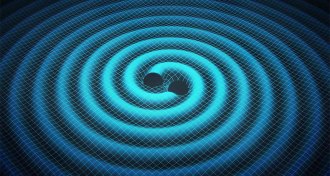 Astronomy
AstronomyBlack hole collisions evade detection
The environment in the centers of some galaxies might inhibit gravitational waves radiating from supermassive black holes, a new study suggests.
-
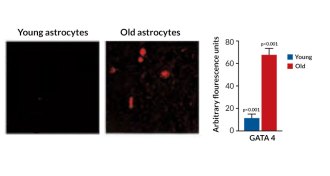 Health & Medicine
Health & MedicineWhat makes cells stop dividing and growing
Scientists have found that the protein GATA4 helps control cellular senescence, and may be a target for treating aging-related diseases.
-
 Life
LifeFor people, mealtime is all the time
People eat for most of their waking hours, which may affect sleep and weight.
-
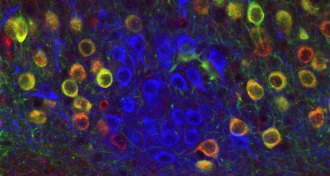 Neuroscience
NeuroscienceSeparate cell types encode memory’s time, place
Cells called ocean cells help store a memory’s “where,” while other cells called island cells help store a memory’s “when.”